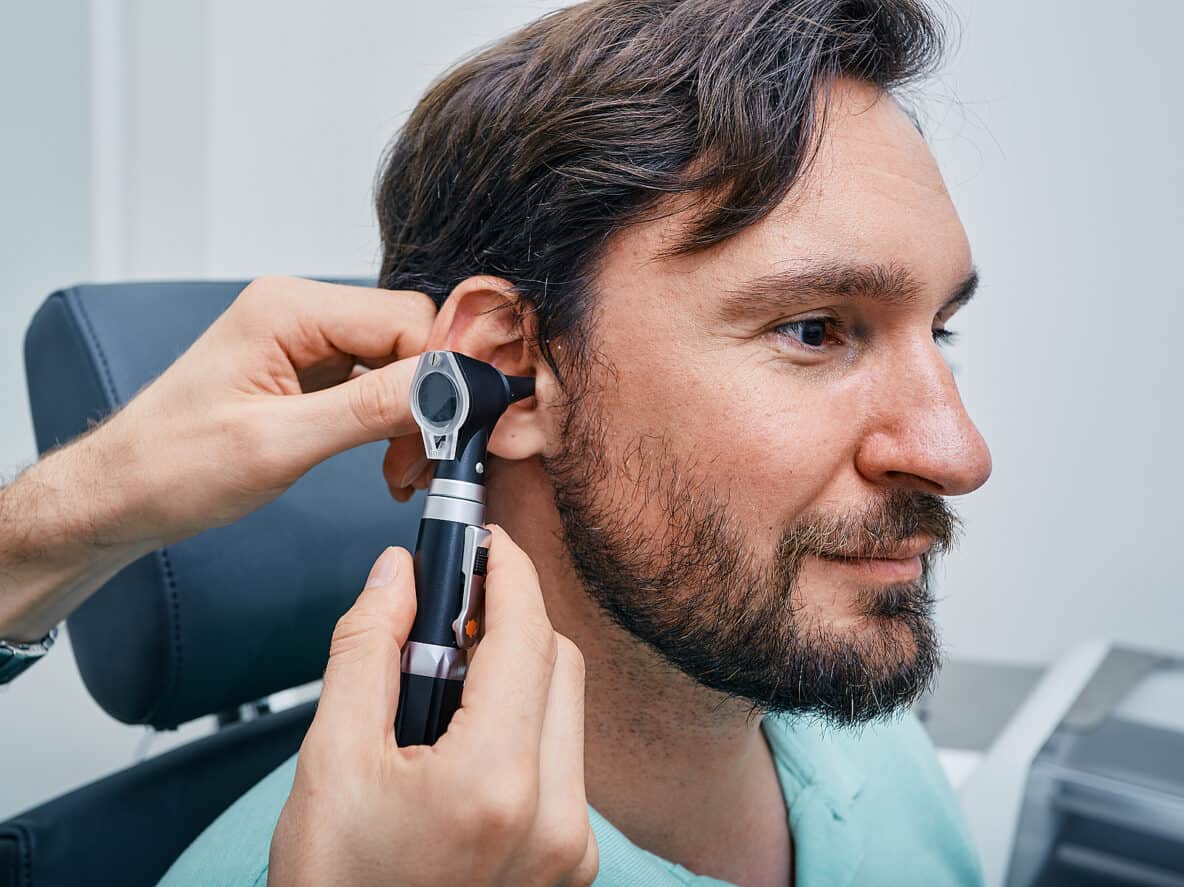By the time you blow out the candles on your 65th birthday cake, one-third of your peers will have hearing loss. But you probably haven’t had routine hearing exams since you were a young child in school.
Hearing loss is one of the leading chronic health conditions in the United States, with one in eight people over the age of 12 years of age presenting signs of hearing loss in both ears. And yet, our familiarity with hearing exams and an unwillingness to examine our own hearing health leads to millions of people living with untreated hearing loss every year.
At your next physical, add hearing health to your agenda.
Hearing health gets pushed to the bottom of the list
According to the Better Hearing Institute, a mere 30 percent of adults underwent a physical that included a hearing exam. In fact, people are significantly more likely to have had a vision test and even a colonoscopy than to have their hearing tested.
Experts recommend that every adult has their hearing tested once a decade. After 50, hearing exams should happen once every three years. And once you turn 65, you should have an annual screening.
Age is the leading predictor for hearing loss
While there are causes for hearing loss throughout the age spectrum, age remains the leading predictor. That’s because the aging process itself is responsible for most cases of acquired hearing loss.
We are all born with important, delicate inner ear cells. These cells collect noise and transform it into sound information, in the shape of electrical signals, that can then be sent to the brain via the auditory nerve. Our brain’s processing centers take this sound information and turn it into meaningful data like music and language.
But the number of inner ear cells are finite and non-regenerative. That means that they do not reproduce or repair themselves. When they are damaged, we simply lose capacity to hear all of the world’s noise. Less sound information is collected and less is sent to the brain.
And what damages these cells? In most cases, people lose inner ear cells because of the passage of time and natural decay. Noise, or excessive volumes above the safe threshold, also damages inner ear cells. This noise-induced hearing loss can happen all at once or build up slowly over time.
Hearing loss and medical outcomes
Hearing loss in itself can be devastating for mental and emotional health. Because it interferes with the ability to communicate with others, it also brings about a sense of isolation and a decrease in connection. As human beings, we require regular episodes and feelings of connection with one another. People with hearing loss also experience a higher risk of depression.
But our physical health is also impacted by hearing loss. Integral to the balance systems, people with hearing loss experience more accidental falls compared to people with healthy hearing. This is also because hearing loss brings mental fatigue because our brains must work much harder to piece together and make sense of sound information around us. It also decreases our spatial awareness.
In a recent study, researchers found that hearing loss actually hits your pocketbook. People with hearing loss spent an average of 46 percent more on medical costs compared to people with healthy hearing.
Hearing loss is highly treatable
But perhaps the most heartbreaking result that comes from our laxity around hearing health is that so many people who could benefit from treatment don’t get the support that they need. On average, people with hearing loss wait a decade before choosing hearing aids. That means they wait until the problem becomes untenable before deciding to take action. And, it’s estimated that only a small percentage of people who would benefit from hearing aids actually do so.
You don’t have to live with hearing loss, even mild to moderate cases, just because it is part of the aging process. There are many proven and successful products on the market that can significantly reduce listening effort and make connecting with those you love easier.
While confronting hearing loss can seem overwhelming, the results are remarkable. In most cases, people with hearing aids report that their overall quality of life has improved and many even relay that they’ve experienced increased confidence because of their hearing aids.
Speaking to your physician about hearing health may just end up improving your overall vitality in life.

